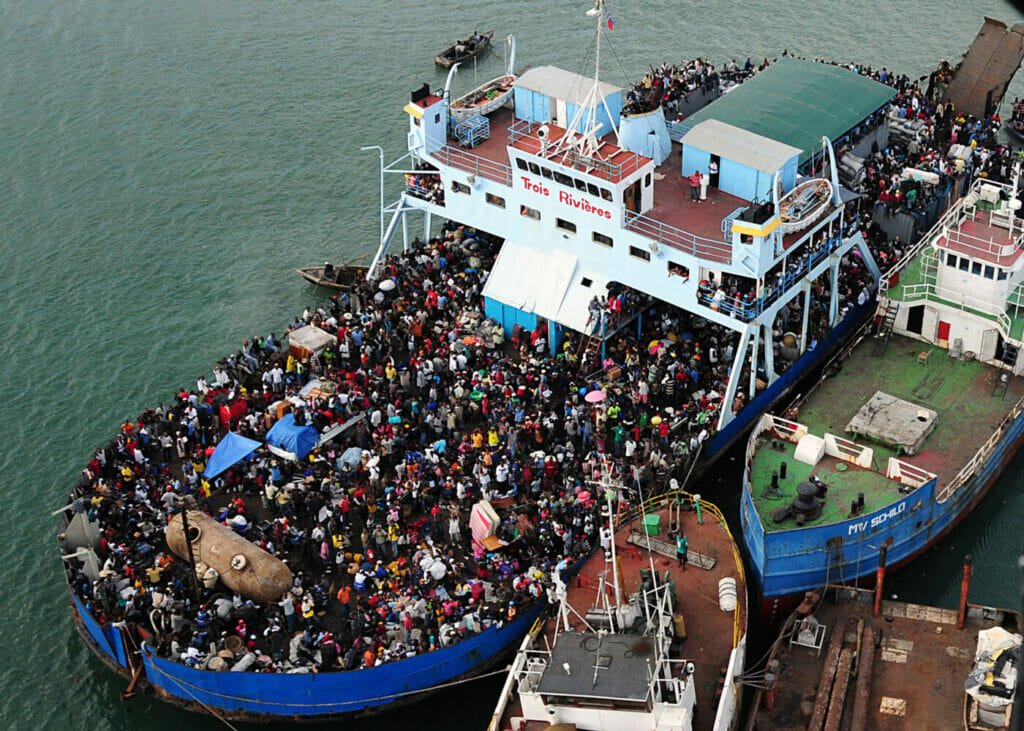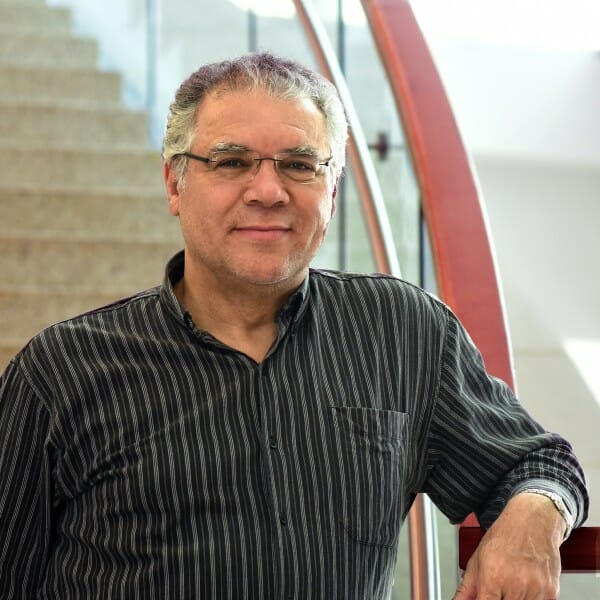UVA Professor Robert Fatton on Haiti

BY THABIE SIBANDA
University of Virginia’s emeritus professor Robert Fatton of Haitian origin casts a critical look at Haiti in this exclusive interview with The African‘s reporter Thabie Sibanda.
Just like many nations, the Republic of Haiti has had its fair share of adversity. It would be a hard feat to find someone who is not aware of the catastrophic earthquake of 2010 that involuntarily thrust this country into the international limelight. Within 75 seconds, the 7.0 magnitude earthquake unleashed unthinkable terror, killing hundreds of thousands of people and affecting millions more. A shocked global audience quickly jumped in, pouring billions of dollars in emergency aid into the crippled nation to help save lives and get the nation back on its feet. Other tragedies followed over the years, and the world responded generously again.
Despite the massive aid that poured in from all over the world—even from poor African countries—the state of the country left much to be desired and it had the global community asking where all of the money went. Giving us a perspective on the state—then and now—of the first independent nation of Latin America and the Caribbean is the highly-respected scholar Dr. Robert Fatton, Jr., a current associate dean for the University of Virginia and a native of Haiti. Born and raised in Haiti, Dr. Fatton is the author of several successful books on Haiti that include “Haiti’s Predatory Republic: The Unending Transition to Democracy,” and “The Roots of Haitian Despotism.” He’s penned several publications that offer a highly-enlightened viewpoint of the political instability, health issues, abject poverty and intense debt that continue to plague Haiti.

The African: How does Haiti’s history affect where it stands right now politically?
Prof. Fatton: Haiti is facing the same problems that it has faced in the last 50 years. First, there is a problem of gross inequalities between the people who have power and the vast majority of the Haitian population. Second, we have real problems in terms of government. In other words, the governments that we’ve had, even when they are elected, are not very effective and they tend to be very corrupt. Then we have the problem of massive foreign interference in the country.
Whoever is elected has to deal with great issues of dependence on the major powers, the World Bank and the IMF (International Monetary Fund). That means that the policies that are enacted in Haiti are to a large degree policies that have been decided by foreign powers or foreign institutions. When you look at the economic policies that we have now, a lot of what we have is totally dependent on what the World Bank has wanted for the development of the country.
What are some of the examples of those policies that the World Bank has enacted that have had a great impact on Haiti?
They are the typical things that you find in many third world countries. In the 1990’s for instance, the World Bank, the IMF and the major donors thought that the government was not to be trusted. So the decision was made that any type of foreign assistance, or the bulk of it, would be given to non-governmental organizations. That, in turn, has meant that the government and the state have been weakened tremendously. The state doesn’t have the capacity to really steer the nation in one direction or another because the bulk of the resources don’t go through the state. They go through non-governmental organizations.
The other aspect of it, and that is a fundamental element of the problems that we have, is the decision on the part of those key institutions that Haiti should not depend on agriculture or food production for its development. That food should come from the United States or the European community. That Haiti should concentrate on becoming an exporter of garments, an exporter of assembled goodies for the European and the American markets.
So if you look at the immediate goal of foreign assistance after the earthquake, one was to create an industrial zone in the north of the country. Something like $270 million was spent on creating that industrial zone. That has created barely 4,000 jobs. The amount of money concentrated there is phenomenal given the poverty in Haiti. The jobs that are provided are jobs that are very poorly paid. Haitian workers make barely $5 a day. In most instances, people who are involved in those jobs are cheated of the legal salary. So what you have, therefore, are a few little enclaves that are exporting stuff to the United States market and the European market.
Political corruption is a common problem in Haiti, the Corruption Perception Index by The Transparency International has rated Haiti in the top ten most corrupt countries in the world for the several years in a row. How do you believe that perception of corruption in Haiti has affected the way it is viewed by the rest of the world?
One of the reasons why the IMF and the World Bank are telling the government that it shouldn’t get money is that they argue the government is corrupt. There is no doubt that there is corruption in Haiti but that corruption is not just the corruption of the government. It’s also the corruption that you get in the non-governmental organizations. The bulk of the money given to Haiti doesn’t go to the Haitian government. So you can’t really test the level of corruption in the Haitian government because it gets so little. Most of the corruption is actually in doing business in Haiti. It’s not in a governmental dispersal of the money that they get because they get so little. It’s one of those catch-22 situations. If you want to have a functioning government, then you need to invest in that government. If you don’t invest in that government then you’ll never get it. And the fear is if you invest in the government the money will be wasted.
International interference has been a problem. In that case, who should be investing in the government?
You have a series of contradictions. Ultimately, if Haiti is to extricate itself from the problems that it has faced for so long, Haitians should completely decide to do their own thing. The problem with that strategy is the people who have power are not going to accept that because they are linked to the external world and they would want to continue those linkages. Those linkages are quite beneficial to them.
So you have a tension between what I call the plan for national development on the one hand, and, on the other hand, the plan that is devised by the local elite and the international community. The two [plans] are quite different. I don’t think Haiti will extricate itself from its problems by getting money from the United States, the World Bank, France or from Israel. That will not solve the problems.
The problem is how do you change those patterns of dependence? You can elaborate national policies that really respond to national needs and how do you define those national needs. If you look at Haiti, 60% of the population is still involved in the rural areas and they are living in real desperate conditions. The urban areas are in serious decay because you have that surplus population living in the slums. Haiti should really restore and invest in the agricultural sector. That would improve the basic standard of living of the peasantry. It would also begin to stop the exodus of people in the rural areas to the urban areas. It would generate the type of cycle whereby peasants would start to produce for the local market. That would generate some wealth for the rural areas. That, in turn, would connect to the urban areas and the urban areas would come also to support the rural areas.
What we’ve done so far is to have a pattern of development which is based not on satisfying the needs of Haitians but which is satisfying the needs of the external community: export cheap goods to the United States, to Western Europe. Cheap goods that are in fact produced on the backs of very cheap Haitian labor. That is a strategy that has been tried and that has failed.
The former U.S. Ambassador Raymond Joseph said his dream for Haiti is decentralization. Is that a possible reality for Haiti that you believe would benefit the country?
To some extent Haiti is already decentralized because the government doesn’t have the capacity to really tell every corridor in Haiti what to do. If you’re talking about decentralization as in development, not just in the capital city in Port au Prince, then I am all for it. I think the best thing to do is to actually generate development in the rural areas. That would really decentralize power but this is a political decision.
The people who have power are really the people in the urban areas and their interest is quite distinct from the interest of the vast majority of the people in the rural areas. Until you resolve that problem, I don’t think you can resolve any of the fundamental issues that Haiti is facing.


